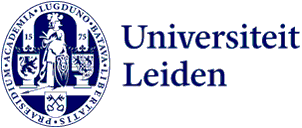
‘In ten years’ time, we’ll ask ourselves how we can make the Netherlands more attractive for migrants’
When politicians claim they can make major differences with their migration policies, they’re raising false expectations. The opportunities for the government to restrict migration are in fact very limited. And what about the little room they do have? Mark Klaassen’s advice is to make use of those opportunities - 'before it’s too late.’
From campus to cabinet
On 22 November, the Netherlands will vote for a new government. Important themes according to the polls are livelihood security, healthcare, immigration and asylum, the housing market, climate and sustainability. Which aspects should a new government keep in mind within these themes? Our researchers reflect on this in a series of articles.

What is migration?
Migration is a highly divisive issue. So much so that it even caused the fall of the previous cabinet. In voting aids such as VoteMatch, the issue is often reduced to a very simple statement along the lines of: ‘When a refugee is allowed to stay in the Netherlands, currently their immediate family can also come here. The government has to restrict that’ (proposition 14 of VoteMatch). Or: ‘The Netherlands must take in fewer asylum seekers.’ But the issue is much broader than this. Klaassen, Assistant Professor of Migration Law, explains: ‘There are different categories of migration: voluntary and forced. Voluntary migrants are people who come to the Netherlands to work or study, which they can also do elsewhere. Forced migrants are asylum seekers. These are people who have left their home countries in the hope of finding a better life in the Netherlands. They have been forced to leave because they were persecuted there or at risk of suffering inhumane treatment.’
Unlawful policy on asylum seekers
Politicians campaign on migration policy by acting as if there is actually a choice to be made. ‘When politicians give the impression that their migration policies differ from one another, they are raising false expectations. There are international agreements that the Netherlands has to observe, so the options open to the country are very limited.’ He mentions the example of the right to family reunification. ‘The outgoing State Secretary for Asylum and Migration, Eric van der Burg (VVD), introduced a waiting period for family reunification: if an asylum seeker did not yet have a home, his family members had to wait a year before they could come to the Netherlands. They were only allowed to come earlier if the status holder received housing earlier.’
This was a sham, says Klaassen. ‘We knew in advance that the policy conflicted with a European agreement. Nonetheless, the State Secretary still pursued it. The policy was challenged in the law courts and ultimately the Council of State, the country’s highest administrative court, quashed the policy in February 2023 because it contravened European agreements on family reunification. Following that judgment, the State Secretary was no longer able to implement the policy.’
Policies must comply with international obligations
This is not an isolated instance given that there are other rules that the Dutch Government breaches. Last month, the European Court of Human Rights determined that the Netherlands had unlawfully extradited an asylum seeker to Bahrein. In his appeal, the asylum seeker said that he was being persecuted in Bahrein, but this was not taken into account. Klaassen: ‘When the man arrived in Bahrain, he was immediately arrested and sentenced to life imprisonment.’
'Politicians have to stop pushing the boundaries'
Although Klaassen does not say that Dutch policy 'clearly infringes human rights', he is concerned that this is what testing the limits will ultimately lead to. 'Politicians have to stop pushing the boundaries. It almost amounts to acting in bad faith. What we need are policies that minimise the risk of infringing human rights, rather than increasing that risk. The government has to operate within the limits of international laws, in terms of both the letter and the spirit of the law.’
Thinking smarter about migration
Klaassen would like to see a change in the thinking about the migration debate: ‘Don’t look at migration as a threat, but as an opportunity.’ He believes that if the Netherlands persists with its current narrow view, the country will ultimately lose out. ‘In ten years’ time, when the ageing of the population is in full swing, the debate will no longer be about “limiting migration”, but how we can make it more attractive for migrants to come here.’
'Don’t look at migration as a threat, but as an opportunity'
The ageing of the population is not just a Dutch problem. Klaassen: ‘It’s something that will affect all Member States.’ Although at the present time, the Netherlands has a lot of labour migrants from Europe, he questions whether this will be enough in the longer term. ‘Our country may well need labour migrants from outside the EU. And in any event, within Europe, the Netherlands will need to be an attractive place for European migrant workers.’
This explains why he also believes that restricting student migration is not a wise policy. ‘The policy was aimed at retaining students for Dutch society once they have graduated. Now, however, the debate is about knowledge migrants, and making the Netherlands less attractive for them, including putting an end to the tax concessions for expats.’ As far as Klaassen is concerned, that’s typical short-term thinking. ‘We’re going to need knowledge migrants, for innovation, for example, another challenge facing the future labour market. And not only that, it’s not exactly a bad thing for your economy to have a big education sector.’
Text: Helena Lysaght
Image: Fien Leeflang
